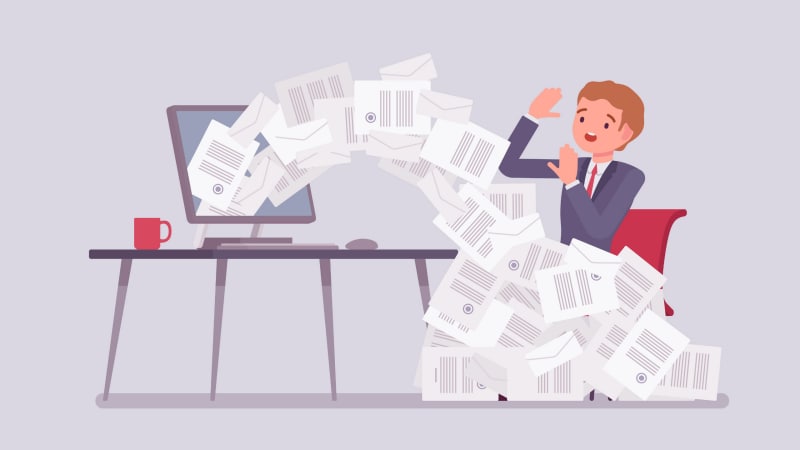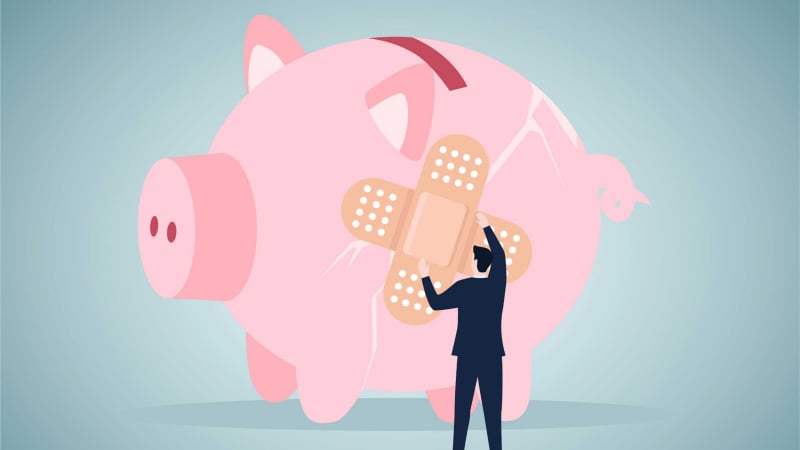How to use secured and unsecured credit cards

Credit cards can help you build credit and purchase the things you need, but if your credit score is less than ideal, it can be difficult to get approved. That's when you may want to consider a secured credit card. You'll be able to access credit, but will need to put down your own money as collateral first.
In comparison, an unsecured credit card does not require collateral, so the credit card issuer will want to see a solid history of on-time payments and a higher credit score before approving you.
This article will go into more detail about secured and unsecured cards, including:
- What is a secured credit card?
- Tips for using a secured card
- What is an unsecured credit card?
- Secured credit cards vs. unsecured credit cards
- Pros and cons of secured credit cards
- Pros and cons of unsecured credit cards
What is a secured credit card?
Although Chase does not issue them, secured credit cards are cards backed by a cash deposit. The cash deposit acts as collateral and reduces the lender's risk. If you default on your payment, the lender will be able to keep the deposit. Secured credit cards may help to build and establish your credit score if you make consistent on-time payments, avoid late fees and keep your balance low.
How secured cards work
The deposit is typically equal to your credit limit. If you want a $500 limit, you'll deposit $500. The minimums and maximums vary by card, but most start around $200.
Some card issuers might let you upgrade directly from your account, while others will require you to apply for an unsecured card elsewhere and then close your secured card.
How long will it take for a secured card to raise my credit score?
With responsible card use and on-time payments, you may see improvement in your credit score within six months.
How to close a secured credit card
To close a secured credit card, you may need to pay off your balance first. Then call the number on the back of your card and tell a representative that you want to close your card. Make sure to confirm the amount you'll be getting back and how long it will take to receive the funds.
Tips for using a secured card wisely
The following best practices will set you up for success while using the card:
- Each month, try to pay your credit card bill in full by the due date if possible.
- Making a few small purchases with your card each month can be a helpful way to show responsible spending and maintain a healthy credit balance. It’s a good idea to avoid maxing out your card frequently.
- Keep an eye on your credit score. Once it improves, you can consider applying for an unsecured card. Chase offers a free service called Chase Credit Journey which allows you to monitor your credit score weekly.
How is a secured card different from a prepaid card?
Secured cards and prepaid cards both require you to pay money before you can use them.
Secured card activity is reported to the credit bureaus, which helps you build a credit history. Prepaid card activity will not appear on your credit reports, and as a result do not affect credit history or help you establish a credit score.
What is an unsecured credit card?
Unsecured cards don't require a security deposit. They're called unsecured because they're not backed up with collateral. They are more common than secured cards and are available to individuals with a wide range of credit scores, from average to excellent.
How unsecured cards work
A credit card issuer lends a line of credit to an individual based on their creditworthiness (your reliability in paying the money back). Cardmembers are expected to send in a minimum payment by the due date. If the entire bill is paid for in full by the payment due date, you may not accrue interest.
The specific lending terms, such as annual percentage rates (APR) and credit limits, are mostly based on your credit score and history. The lack of collateral makes this type of credit card riskier to the lender than a secured card, so the higher your credit score, generally the more favorable your terms will be.
Improving your credit with unsecured cards
Making your monthly payments on time is one of the best ways you can improve your credit. It shows lenders that you are a reliable, low-risk borrower. Building a history of these on-time payments can boost your credit score.
A great way to ease into using unsecured credit cards is to make a few small purchases each month, then pay off the bill in full. This helps you to keep track of your purchases and get into the rhythm of paying your credit card bill at a set time each month, without any surprises. Over time, you may be eligible for a higher credit limit as your credit score improves.
Secured credit cards vs. unsecured credit cards
Secured and unsecured credit cards are more similar than they are different. Some credit card companies offer both kinds of cards. Both kinds can be used in-store or online, and both charge interest if you carry a balance month-to-month. With each of these cards, you'll receive a monthly statement. You are only required to pay the minimum payment listed on your statement each month, but it's in your best interest to pay the full amount.
The main difference between the two kinds of cards is that the secured card requires a security deposit up front and the unsecured card does not.
Pros and cons of secured cards
Pros
- Easier to get approved
- Helps to build credit history without the risk of going into debt
- You will receive your security deposit back as long as you don't default on payments
Cons
- High APRs and fees
- You must front the money yourself in the form of a security deposit
- Few, if any, rewards
Pros and cons of unsecured cards
Pros
- No collateral is required
- Many cards offer perks in the form of rewards points or cash back
- Typically has lower APRs and higher credit limits
Cons
- You need a good credit score to qualify
- Card terms are dependent on your creditworthiness
- You may have a higher credit limit that could enable you to spend beyond your means
In conclusion
Both cards serve as a way to access credit and help you to build your credit history. If you're someone with a low credit score or do not have an established credit history, a secured card may be the best option for you. If you have more experience paying your bills on time and are ready to earn rewards, an unsecured card could be the right fit. Either way, be sure to do your research and understand all the terms of your credit card agreement.
Chase offers a credit card that fits your needs.



